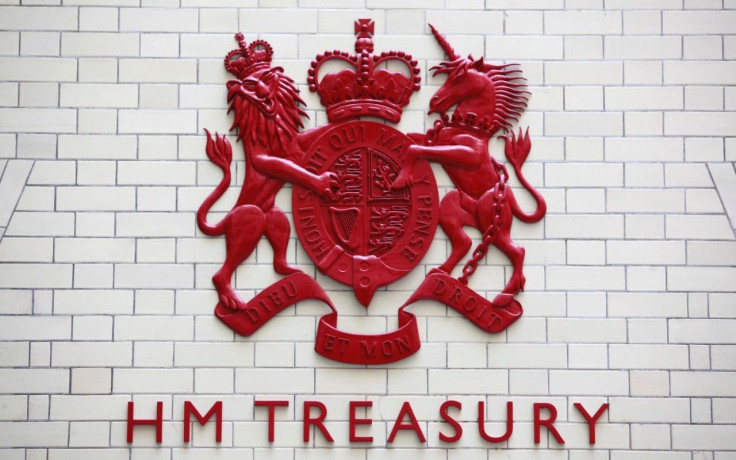UK Treasury mulls regulating cryptocurrency 'whilst not stifling innovation'
The inquiry will formulate a regulatory response to digital currencies from the Government, the FCA and the Bank of England.

The Treasury Committee is launching a new inquiry into digital currencies and distributed ledger technology, looking at the opportunities and risks the technology may bring to consumers, businesses, and the Government.
The Treasury, Financial Conduct Authority, and the Bank of England will assess how regulation could be balanced to provide adequate protection for consumers and businesses without stifling innovation. It will also consider the potential impact of distributed ledger technology on financial institutions, including the central bank, and financial infrastructure, said a statement.
The Rt Hon. Nicky Morgan MP, Chair of the Treasury Committee, said: "People are becoming increasingly aware of cryptocurrencies such as Bitcoin, but they may not be aware that they are currently unregulated in the UK, and that there is no protection for individual investors.
"The Treasury Committee will look at the potential risks that digital currencies could generate for consumers, businesses, and Governments, including those relating to volatility, money laundering, and cyber-crime."
The Government is also keen to examine the potential benefits of cryptocurrencies and the technology underpinning them, how they can create innovative opportunities, and to what extent they could disrupt the economy and replace traditional means of payment.
"The distributed ledger technology that supports digital currencies is said to have significant transformative potential, not least within the financial services sector," added Morgan. "Striking the right balance between regulating digital currencies to provide adequate protection for consumers and businesses, whilst not stifling innovation, is crucial. As part of the inquiry, we will explore how this can be achieved."
Alison McGovern MP, Member of the Treasury Committee, said: "This inquiry comes at the right time, as regulators and Governments wrestle with recent events in cryptocurrency markets. New technology offers the economy potential gains, but as recently demonstrated, it may also bring substantial risks.
"It is time that Whitehall and Westminster understood cryptocurrency better, and thought more clearly about the policy environment for blockchain technology."
The inquiry will cover:
- The role of digital currencies in the UK, including the opportunities and risks digital currencies may bring to consumers, businesses and the Government (and associated bodies).
- The potential impact of distributed ledger technology on financial institutions, including the central bank, and financial infrastructure.
- The regulatory response to digital currencies from the Government, the FCA and the Bank of England in relation to Anti-Money Laundering legislation and how regulation could be balanced to provide adequate protection for consumers and businesses without stifling innovation.
Some of the key questions the Committee will consider in this inquiry include:
- Are digital currencies ultimately capable of replacing traditional means of payment?
- To what extent could digital currencies disrupt the economy and the workings of the public sector?
- What risks and benefits could digital currencies generate for consumers, businesses and governments?
- How is distributed ledger technology being applied in the financial services sector, and how might it be applied in future?
- What work has the Government (and its associated bodies) done to understand, prepare for and, where relevant, encourage changes that may be brought about by increased adoption of digital currencies?
- How might the Government's processes adapt should digital currencies be adopted more widely (e.g. tax implications, anti-money laundering measures)?
- Is the government striking the right balance between regulating digital currencies to provide adequate protection for consumers and businesses whilst not stifling innovation?
- Could regulation benefit digital currency start-ups by improving consumer trust?
- How are governments and regulators in other countries approaching digital currencies and what lessons can the UK learn from overseas?
Luke Scanlon, Head of Fintech Propositions, at international law firm Pinsent Masons, said: "It is positive to see that the scope of the inquiry includes a consideration of how regulation in this area could be framed in order not to stifle innovation.
"As lawmakers and regulators across the world look into the current issues surrounding the use of cryptocurrencies, there is a danger that the positive innovative potential which some of them have could be overlooked, and not balanced against the need to consider the obvious concerns about their impact on financial stability, market infrastructure, anti-money laundering and the need for investor protection.
"It is also encouraging to see that the inquiry will extend beyond simply focussing on the use of digital currencies as substitutes for the pound, and include a consideration of how regulation could benefit digital currencies start-ups.
"Given the number of initial coin offerings currently being promoted and the rising need to clarify the extent to which digital currencies and tokens can form the basis of donation based crowdfunding and other forms of raising capital, a balanced look at how new ways to create and encourage access to finance is also to be welcomed."






















